 The full title of this limited edition CDR documenting ST 37’s 2009 tour is Awkward Moments Tour Live: True Stories From The Untold. What the “true stories” refers to is the 6-page tour notes that accompanies the disc and includes such crazy accounts as that of Joel Crutcher being thrown out of the Hallandale Beach, FL Crowne Plaza Hotel pool after being mistaken for a homeless person, and Bobby Baker attempting to pee in a poorly ventilated and recently used restroom and vomiting on his… well… the title is, after all, Awkward Moments. But it’s more like the fun little tidbits that are all part of a rock band on the road.
The full title of this limited edition CDR documenting ST 37’s 2009 tour is Awkward Moments Tour Live: True Stories From The Untold. What the “true stories” refers to is the 6-page tour notes that accompanies the disc and includes such crazy accounts as that of Joel Crutcher being thrown out of the Hallandale Beach, FL Crowne Plaza Hotel pool after being mistaken for a homeless person, and Bobby Baker attempting to pee in a poorly ventilated and recently used restroom and vomiting on his… well… the title is, after all, Awkward Moments. But it’s more like the fun little tidbits that are all part of a rock band on the road.
Wow, ST 37 and their brand of Space Rock/Psychedelic/Punk have been around for getting near 30 years now. That’s real longevity in the underground. The CD consists of 11 tracks, is well over 70 minutes, and features a good cross-section of what ST 37 are about. The set opens with Number One Fan, a 12 minute excursion that ranges from Hawkwind Space Ritual styled alien effects to acidic psychedelic intensity. After the first 4 minutes the bass and drums develop a sense of rhythmic propulsion, though overall this is an exploratory spacey freakout piece through-and-through. Similar tracks include I Was Looking For My Digital Underground Grandpa Tape, a relatively short stoned freakout piece. One of the highlights of the set is Solaris, a track from the 2004 Insect Hospital album. Inspired by Andrei Tarkovsky’s film of the same name, this is 12 minutes of cinematic, theme-driven, white-knuckled space rock, something that ST 37 are no strangers to, having created their own soundtrack to the classic silent Metropolis and performed it on several occasions to screenings of the film. Another standout is Grandpa’s Birthday, from the 2010 High And Inside album, which is a down ‘n dirty, brain-splattering, space rocking acid-punk-metal rampage.
We’re also treated to live versions of ST 37 songs I’ve always enjoyed. Ghosts Of Tempera Nymphs, from the 1992 Invisible College album, is a tune I’ve played several times on Aural Innovations Space Rock Radio. From the 1997 Spaceage album, Concrete Island is dark and ominous but deep in space. This is an excellent version, capturing the combination of melodic flow and pounding intensity of the song, and has killer manic soloing psych guitar. Future Memories is another monster live performance, this one being the title track from the 2005 album of the same name, and is a kick-ass slab of stoned, metallic, acid-psychedelic mind-fuckery. Maroons, also from High And Inside, is a slow and mesmerizing song that’s both stoned and metallic and peacefully hypnotic, with beautiful mind-bending guitar licks alongside acid-metal guitar, all building up to a high intensity yet trance-inducing explosion. Another winner! These veterans STILL got it!
And just to show that ST 37 aren’t easily pigeonholed, we’ve got the short and nasty punk song The White Comanche, yet another from the High And Inside album, the blazing space-punk song Watch The Bile Come Out, from 2006’s And Then What, which would be right at home on an early Chrome album, and rounding things out nicely is Just You, a romantic 50’s doo-wop song served up ST 37 style.
In summary, HIGHEST recommendation to ST 37 fans, AND I recommend it as an introduction to the band is you’re a newcomer. Better hurry though because it was released in an edition of only 100 copies.
Awkward Moments is available from Reverb Worship at: http://reverbworship.com
Visit the ST 37 web site at: http://www.st37.com
Visit the ST 37 Bandcamp site at: http://st37.bandcamp.com
Reviewed by Jerry Kranitz

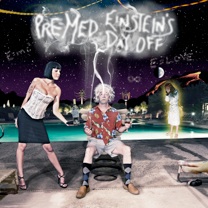 After their amazing debut It’s Medication Time, in 2006, I was a little disappointed in the follow-up second album, a couple of years later. They had replaced their amazing guitarist Lewis Turner with a young talent that did not float my boat, excactly, to handle the guitars on their second Voiceprint label CD, The Truth About Us. Well, in 2013, it looks like Pre-Med have taken their prescribed LSD tabs since, and come back in full form with Alan Davey and Danny Thompson from Hawkwind doing all the bass and battery, like on It’s Medication Time, the original Pre-Med 2006 mindblowing artifact of a Spacerock CD. I reviewed this album very favourably for the norwegian newspaper “Gateavisa” in 2007 as well as playing Man Eggs From Mars on my
After their amazing debut It’s Medication Time, in 2006, I was a little disappointed in the follow-up second album, a couple of years later. They had replaced their amazing guitarist Lewis Turner with a young talent that did not float my boat, excactly, to handle the guitars on their second Voiceprint label CD, The Truth About Us. Well, in 2013, it looks like Pre-Med have taken their prescribed LSD tabs since, and come back in full form with Alan Davey and Danny Thompson from Hawkwind doing all the bass and battery, like on It’s Medication Time, the original Pre-Med 2006 mindblowing artifact of a Spacerock CD. I reviewed this album very favourably for the norwegian newspaper “Gateavisa” in 2007 as well as playing Man Eggs From Mars on my 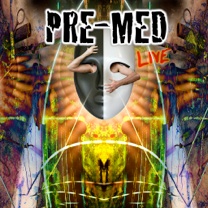 Both discs chug away like Trio-era Hawkwind, with those nice electronic bits as breaks or as guitar / bass added FX, the way Hawkwind used to do in the early 90’s, and still do to an extent (not so much anymore as Hawkwind have Tim Blake handling synths, so Dave or Niall needn’t trigger synth sounds from their guitars) I would assume. Alans presence with his monsta bass could very well make Pre-Med a project much like his Bedouin or Gunslinger bands, in fact it is because Alan and Danny being involved in the first Pre-Med CD, I bought it and was blown away, yet had it not been for the Faulkners, Martin and Danny, handling lyric writing, and singing, in that order, so to say, if Alan did vocals and songwriting, which he does not, it would be a lot like a new Bedouin with Thompson. He is merely the bassist though, much like his work with The Meads Of Asphodel. The Live disc has material from the first two Pre-Med CDs and clocks in at just under 30 minutes with 5 songs. These CD’s are self released and feature the fine artwork of Kevin Sommers who has provided his talents on Alan’s solo stuff as well. Often, being an artist myself, and having created CD covers for a few bands, I find Sommers work to be mindblowing but much too cluttered and over worked digitally in some cases, but not always. It gets abit tedious, to look at. Like composition? Out the window dude! But it works for these bands very well, they all seem to think so, as well as the fans too, anyway. And I agree 80%. I generally don’t like medication BTW. At least not the kind given to me by men in white coats!
Both discs chug away like Trio-era Hawkwind, with those nice electronic bits as breaks or as guitar / bass added FX, the way Hawkwind used to do in the early 90’s, and still do to an extent (not so much anymore as Hawkwind have Tim Blake handling synths, so Dave or Niall needn’t trigger synth sounds from their guitars) I would assume. Alans presence with his monsta bass could very well make Pre-Med a project much like his Bedouin or Gunslinger bands, in fact it is because Alan and Danny being involved in the first Pre-Med CD, I bought it and was blown away, yet had it not been for the Faulkners, Martin and Danny, handling lyric writing, and singing, in that order, so to say, if Alan did vocals and songwriting, which he does not, it would be a lot like a new Bedouin with Thompson. He is merely the bassist though, much like his work with The Meads Of Asphodel. The Live disc has material from the first two Pre-Med CDs and clocks in at just under 30 minutes with 5 songs. These CD’s are self released and feature the fine artwork of Kevin Sommers who has provided his talents on Alan’s solo stuff as well. Often, being an artist myself, and having created CD covers for a few bands, I find Sommers work to be mindblowing but much too cluttered and over worked digitally in some cases, but not always. It gets abit tedious, to look at. Like composition? Out the window dude! But it works for these bands very well, they all seem to think so, as well as the fans too, anyway. And I agree 80%. I generally don’t like medication BTW. At least not the kind given to me by men in white coats!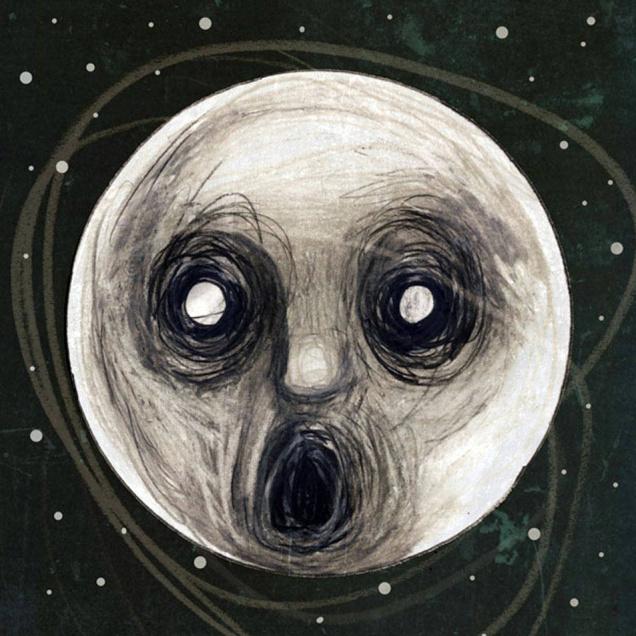 Emerson, Lake & Metal? Golden boy Wilson, everything he touches turns to Gold. His new solo CD came in like 4 or 5 formats, and I went for the CD/DVD version. I like it right off the bat, just like the previous solo stuff, be it studio or live, I tend to like it better than his current Porcupine Tree material. He uses EMS and Mellotrons here, with a HEAVY nod towards ELP (a derided band he might make a tad more likeable for me, as ELP are my LEAST favorite Prog band… I call them Orchestral Woo Woo music with no soul but a few strange stoned moments like Brain Salad Surgery, which is not Progressive, its Orchestral Woo Woo music, well that track may pass as “good” Prog if Prog was all about doing things the Wrong Way). Well, Steven Wilson has re-mastered the early Crimson, Tull and ELP works nicely, he has struck it rich. Back in the 90’s he produced Fish and Marillion albums, as well. Progdoms Most Wanted, Progdoms bespectacled blonde Saviour. I say this half seriously, the man is Jesus, he could be bigger than Lennon. Enough trying to define the genius Steven Wilson and his fat bank account.
Emerson, Lake & Metal? Golden boy Wilson, everything he touches turns to Gold. His new solo CD came in like 4 or 5 formats, and I went for the CD/DVD version. I like it right off the bat, just like the previous solo stuff, be it studio or live, I tend to like it better than his current Porcupine Tree material. He uses EMS and Mellotrons here, with a HEAVY nod towards ELP (a derided band he might make a tad more likeable for me, as ELP are my LEAST favorite Prog band… I call them Orchestral Woo Woo music with no soul but a few strange stoned moments like Brain Salad Surgery, which is not Progressive, its Orchestral Woo Woo music, well that track may pass as “good” Prog if Prog was all about doing things the Wrong Way). Well, Steven Wilson has re-mastered the early Crimson, Tull and ELP works nicely, he has struck it rich. Back in the 90’s he produced Fish and Marillion albums, as well. Progdoms Most Wanted, Progdoms bespectacled blonde Saviour. I say this half seriously, the man is Jesus, he could be bigger than Lennon. Enough trying to define the genius Steven Wilson and his fat bank account.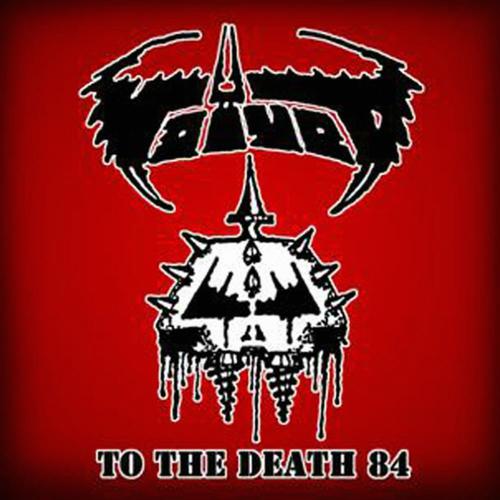 Here, are two Voïvod discs I wasn’t aware of, that I just recently ordered from the
Here, are two Voïvod discs I wasn’t aware of, that I just recently ordered from the  Warriors Of Ice is a 2009 Live recording with the Chewy/Blacky/Snake/Away lineup and it is a blitzkrieg of ferocious Voïvodness, from beginning to end. Chewy imititates Piggy’s guitar work nicely, Piggy used an odd signature like fast jazz, like a scale with timed breaks even, which gave Voïvod that King Crimson feel, as if played by early Chaos UK or The Exploited if one can imagine that. They do material from Angel Rat, which is always welcome to my ears, as I also have the demos for that lovely prog album, and I have recordings of the late 90’s Eric Forrest lineup doing Angel Rat tracks like The Prow and Panorama, thrashing it up all over with melody intact. They do those two signature Angel Rat tracks here. The CD also has early stuff like the opener Voïvod, being the band’s anthem, and Nuclear War from the War & Pain album as well. The excellent Floyd cover from my least favorite Voïvid album, 1989’s Nothingface, but the Astronomy Domine version here is great. Additionally, some stuff from Infini, the album of that year, which was the last to feature ex-Metallica Jason Newsted on bass, so here are some good tracks from that underrated CD. Also included are a couple of tracks from the blistering cyberpunk-thrasher 3rd LP, Killing Technology, like Tornado and Overreaction. It is definitely not for the faint hearted, this band, but I like to review their stuff here at AI, as the SF themes, concept LP’s, and general prog referential nods toward Rush, Floyd and Crimson, they are still the best band in Canada, unless you somehow count the “R”-name band…
Warriors Of Ice is a 2009 Live recording with the Chewy/Blacky/Snake/Away lineup and it is a blitzkrieg of ferocious Voïvodness, from beginning to end. Chewy imititates Piggy’s guitar work nicely, Piggy used an odd signature like fast jazz, like a scale with timed breaks even, which gave Voïvod that King Crimson feel, as if played by early Chaos UK or The Exploited if one can imagine that. They do material from Angel Rat, which is always welcome to my ears, as I also have the demos for that lovely prog album, and I have recordings of the late 90’s Eric Forrest lineup doing Angel Rat tracks like The Prow and Panorama, thrashing it up all over with melody intact. They do those two signature Angel Rat tracks here. The CD also has early stuff like the opener Voïvod, being the band’s anthem, and Nuclear War from the War & Pain album as well. The excellent Floyd cover from my least favorite Voïvid album, 1989’s Nothingface, but the Astronomy Domine version here is great. Additionally, some stuff from Infini, the album of that year, which was the last to feature ex-Metallica Jason Newsted on bass, so here are some good tracks from that underrated CD. Also included are a couple of tracks from the blistering cyberpunk-thrasher 3rd LP, Killing Technology, like Tornado and Overreaction. It is definitely not for the faint hearted, this band, but I like to review their stuff here at AI, as the SF themes, concept LP’s, and general prog referential nods toward Rush, Floyd and Crimson, they are still the best band in Canada, unless you somehow count the “R”-name band… For some twelve years now, the Vermont based hippie collective MV & EE, centered on the duo of Mark Valentine and Erica Elder, have been making a wide mark across the New Weird American landscape. Whether it be their out of space and time folk songs, off-kilter Neil Young and Crazy Horse inspired rockers, their self-described “lunar ragas”, or their live extended ambient explorations, they show no signs of stopping, having released over 30 albums since 2001, rivalling Acid Mothers Temple for prolificacy. Their first album of 2013, Fuzzweed, arrives close on the heels of their last album of 2012, Space Homestead.
For some twelve years now, the Vermont based hippie collective MV & EE, centered on the duo of Mark Valentine and Erica Elder, have been making a wide mark across the New Weird American landscape. Whether it be their out of space and time folk songs, off-kilter Neil Young and Crazy Horse inspired rockers, their self-described “lunar ragas”, or their live extended ambient explorations, they show no signs of stopping, having released over 30 albums since 2001, rivalling Acid Mothers Temple for prolificacy. Their first album of 2013, Fuzzweed, arrives close on the heels of their last album of 2012, Space Homestead.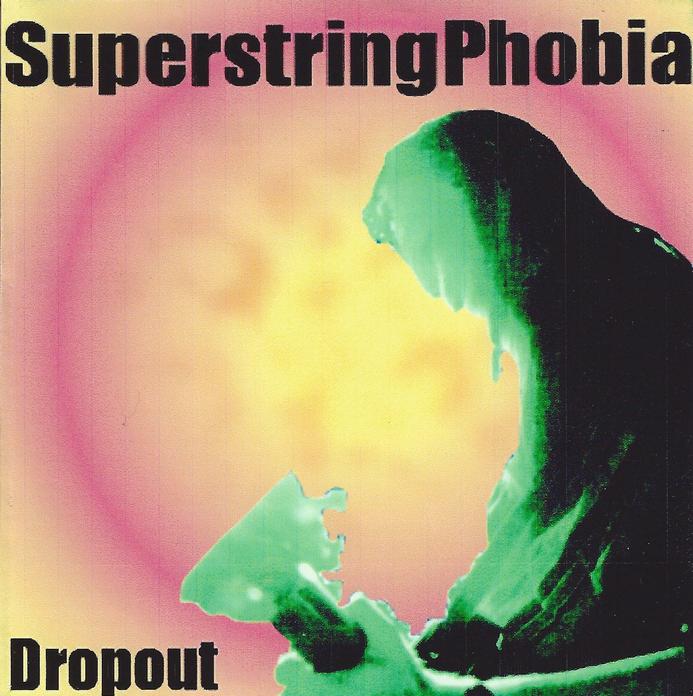 When someone chooses to name their band/solo project after a fear “of wanting to explain all of the particles and fundamental forces of nature in one theory by modelling them as vibrations of tiny supersymmetric strings” (see Wikipedia for further details), you can imagine Dropout being one of those albums that acts as a soundtrack for researching a Masters in Astrophysics. However, fear not; you don’t have to be a rocket scientist to get absorbed by the pulsing beats, hot electronics and razor sharp guitar lines of Superstring Phobia, the brainchild of Leeds-based David Sanderson, who plays and programmes every sound on the album.
When someone chooses to name their band/solo project after a fear “of wanting to explain all of the particles and fundamental forces of nature in one theory by modelling them as vibrations of tiny supersymmetric strings” (see Wikipedia for further details), you can imagine Dropout being one of those albums that acts as a soundtrack for researching a Masters in Astrophysics. However, fear not; you don’t have to be a rocket scientist to get absorbed by the pulsing beats, hot electronics and razor sharp guitar lines of Superstring Phobia, the brainchild of Leeds-based David Sanderson, who plays and programmes every sound on the album. Bahrain are the Austin, Texas based quartet of D. Boone on guitars, Colleen Gugan on bass, keyboards and vocals, Mel on drums, and Scott Telles (ST 37) on bass, keyboards and vocals. The latest from the band is Rest, a 19 track set of live performances, demos, improvs and cover tunes recorded between 2000 and 2005, with some new overdubs, mixing and mastering in 2010. The group actually disbanded in 2005 but reunited for one show in 2012 to promote the release of this CD.
Bahrain are the Austin, Texas based quartet of D. Boone on guitars, Colleen Gugan on bass, keyboards and vocals, Mel on drums, and Scott Telles (ST 37) on bass, keyboards and vocals. The latest from the band is Rest, a 19 track set of live performances, demos, improvs and cover tunes recorded between 2000 and 2005, with some new overdubs, mixing and mastering in 2010. The group actually disbanded in 2005 but reunited for one show in 2012 to promote the release of this CD.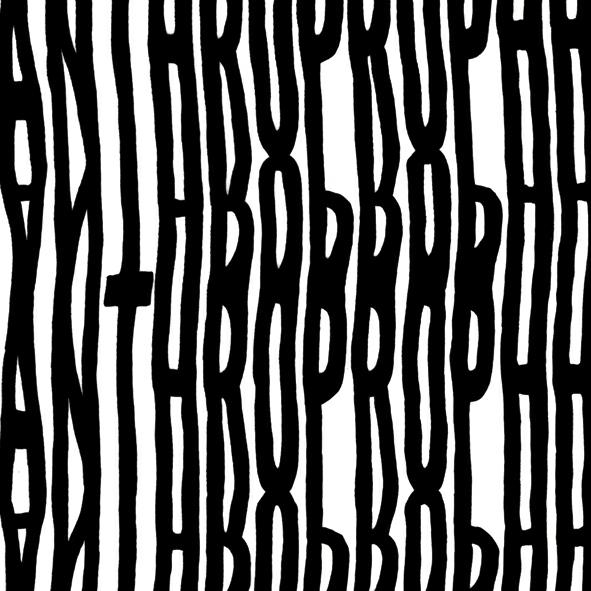 Anthroprophh is the solo project, and this is the first solo album, by The Heads guitarist and vocalist (and audio generator operator) Paul Allen. The Heads are a UK band formed in the early 90’s. Initially inspired by emerging stoner rock bands of the time like Monster Magnet, albeit with a heavier dose of noise thrown in, on later albums like 33 (2004) and Dead in the Water (2005) they began to explore longer form, more experimental rock. For his debut album (released on vinyl and as a download), Allen has taken inspiration from his own band’s later albums, but tempered it with the rhythms of Krautrock for some truly inspired, mostly instrumental psychedelic rock. Opening cut, Hermit, is a churning, LSD soaked electric voyage, from its sea of wah wah’d distortion opening, through its stormy, acidic guitar work and pounding Can-inspired rhythms to its swirling, hallucinogenic coda. These tracks aren’t as long as some of 20-minute monsters found on the above mentioned Heads LP’s, the shortest one being the solo electro-acoustic Discretion Shot (clocking in at 1:09), but their sound is focused, each piece developing its own distinct sonic snapshot, whether it be the tribal intensity of Precession, the droning space journey of Ende or the mind-altering, bad trip British garage rock meets alien landscape of We. Allen does break into longer form exploration with one track on the album though, the 16 1/2 minute Entropy. This one is a sonic buffet for kosmiche loving ears, all intense, part machine, part human rhythmic minimalism married to guitar atmospherics and bubbling, cosmic electronic noises. Allen shows supreme control over his guitar here, slowly developing the ambience, weaving it in and out of the driving tempo of the percussion. The piece ever so slowly builds in intensity over its course, as Allen subtly introduces more and more sounds, finally cutting lose on his guitar for some hypnotic, spiralling soloing only when the tension can’t take it anymore. Mesmerizingly brilliant!
Anthroprophh is the solo project, and this is the first solo album, by The Heads guitarist and vocalist (and audio generator operator) Paul Allen. The Heads are a UK band formed in the early 90’s. Initially inspired by emerging stoner rock bands of the time like Monster Magnet, albeit with a heavier dose of noise thrown in, on later albums like 33 (2004) and Dead in the Water (2005) they began to explore longer form, more experimental rock. For his debut album (released on vinyl and as a download), Allen has taken inspiration from his own band’s later albums, but tempered it with the rhythms of Krautrock for some truly inspired, mostly instrumental psychedelic rock. Opening cut, Hermit, is a churning, LSD soaked electric voyage, from its sea of wah wah’d distortion opening, through its stormy, acidic guitar work and pounding Can-inspired rhythms to its swirling, hallucinogenic coda. These tracks aren’t as long as some of 20-minute monsters found on the above mentioned Heads LP’s, the shortest one being the solo electro-acoustic Discretion Shot (clocking in at 1:09), but their sound is focused, each piece developing its own distinct sonic snapshot, whether it be the tribal intensity of Precession, the droning space journey of Ende or the mind-altering, bad trip British garage rock meets alien landscape of We. Allen does break into longer form exploration with one track on the album though, the 16 1/2 minute Entropy. This one is a sonic buffet for kosmiche loving ears, all intense, part machine, part human rhythmic minimalism married to guitar atmospherics and bubbling, cosmic electronic noises. Allen shows supreme control over his guitar here, slowly developing the ambience, weaving it in and out of the driving tempo of the percussion. The piece ever so slowly builds in intensity over its course, as Allen subtly introduces more and more sounds, finally cutting lose on his guitar for some hypnotic, spiralling soloing only when the tension can’t take it anymore. Mesmerizingly brilliant!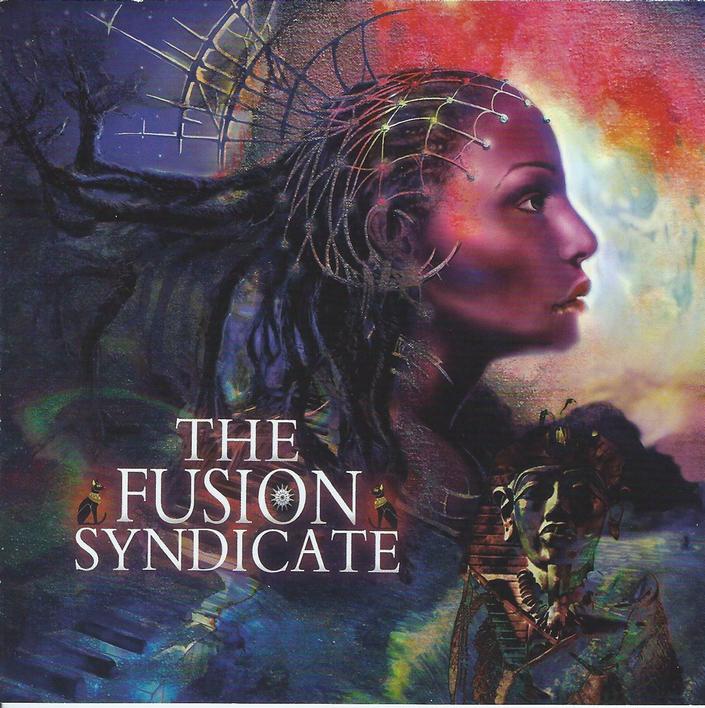 Multi-instrumentalist and producer Billy Sherwood must have a pretty impressive Christmas card list, if the guest stars on this album are anything to go by. Earlier in the year, he pulled together a dream lineup of talent from the likes of Yes, King Crimson and Gong for a project called The Prog Collective. Just a few months later, the cast list is even more staggering on The Fusion Syndicate, the second of a one-two riff on beloved (or derided, depending on which side of the fence you are on) musical genres from the early ’70’s. Name any significant fusion or progressive band or artist from that era, and the chances are that someone associated with them will be on this album. From Yes, Mahavishnu Orchestra, King Crimson, Genesis, Hawkwind, Gong, Weather Report, Soft Machine and Brand X, to sidemen for Frank Zappa, Chick Corea, John McLaughlin and Allan Holdsworth (not to mention … ahem … Billy Idol), all the boxes are well and truly ticked. Each guest appears on one track only with Sherwood acting as the glue that binds it all together, conceptualizing, writing, producing and playing all the instruments (keyboards, guitars, drums) not handled by the guest list on any particular track.
Multi-instrumentalist and producer Billy Sherwood must have a pretty impressive Christmas card list, if the guest stars on this album are anything to go by. Earlier in the year, he pulled together a dream lineup of talent from the likes of Yes, King Crimson and Gong for a project called The Prog Collective. Just a few months later, the cast list is even more staggering on The Fusion Syndicate, the second of a one-two riff on beloved (or derided, depending on which side of the fence you are on) musical genres from the early ’70’s. Name any significant fusion or progressive band or artist from that era, and the chances are that someone associated with them will be on this album. From Yes, Mahavishnu Orchestra, King Crimson, Genesis, Hawkwind, Gong, Weather Report, Soft Machine and Brand X, to sidemen for Frank Zappa, Chick Corea, John McLaughlin and Allan Holdsworth (not to mention … ahem … Billy Idol), all the boxes are well and truly ticked. Each guest appears on one track only with Sherwood acting as the glue that binds it all together, conceptualizing, writing, producing and playing all the instruments (keyboards, guitars, drums) not handled by the guest list on any particular track.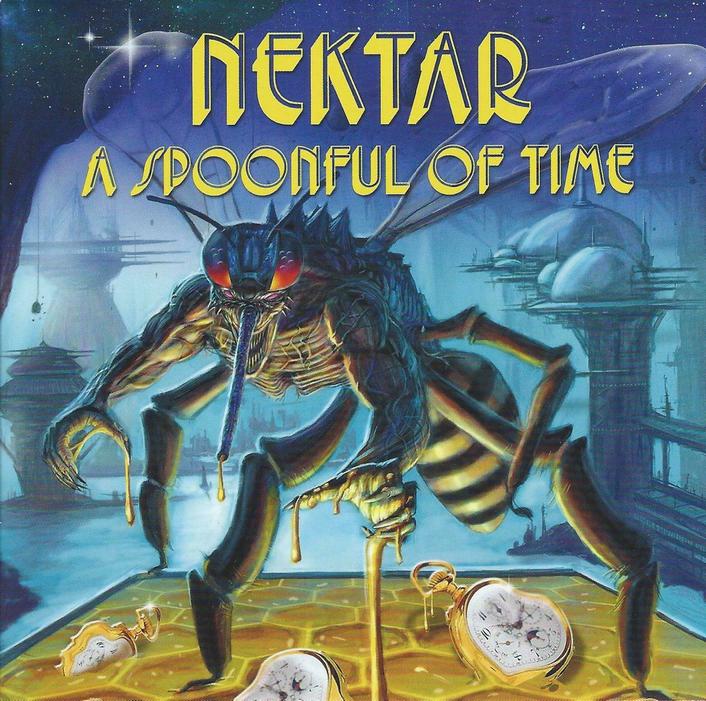 A bit of background information is called for prior to reviewing this album. Purple Pyramid is the prgressive/psychedelic division of Cleopatra Records, the far-out label that brought us some stunning spacerock back in the 1990’s, including re-igniting the careers of ex-Hawkwinders Nik Turner and Simon House, while also releasing a range of covers albums (Pink Floyd, King Crimson, Brian Eno, Hawkwind) of variable quality. Billy Sherwood, multi-instrumentalist producer and associate of the 1990’s Yes, also has a long history of organizing tribute albums – XYZ – A Tribute To Rush, Return To The Dark Side Of The Moon, Dragon Attack – A Tribute To Queen – using a stellar cast of musicians from such bands as Yes, Deep Purple, Hawkwind, Gong and King Crimson. Nektar, on the other hand, just have a long history full-stop (going back to their first release Journey To The Centre Of The Eye in 1971), plus a revolving door of musicians, none of whom can claim the distinction of having played on every single Nektar album. The combining factors of updating progressive rock glories, cover versions and high profile guest stars are key to the release of A Spoonful Of Time. Although released under the Nektar brand name, and featuring long time band members Roye Albrighton (vocals and guitar) and Ron Howden (drums) – the contributions of current the Nektar keyboard player being hard to gauge behind a host of keyboard-toting guest artists – the very existence of A Spoonful Of Time owes as much to Sherwood (who mixed the album and plays on almost all the tracks) and Cleopatra as it does to Nektar. The appearance of a covers collection this late in a band’s career hints at burned out creativity, but at least provides some new music beyond yet another live album or collection of material from their own archives (to be fair, Nektar have got a brand new studio album – Time Machine – in the works for 2013, which would fly in the face of burnout accusations).
A bit of background information is called for prior to reviewing this album. Purple Pyramid is the prgressive/psychedelic division of Cleopatra Records, the far-out label that brought us some stunning spacerock back in the 1990’s, including re-igniting the careers of ex-Hawkwinders Nik Turner and Simon House, while also releasing a range of covers albums (Pink Floyd, King Crimson, Brian Eno, Hawkwind) of variable quality. Billy Sherwood, multi-instrumentalist producer and associate of the 1990’s Yes, also has a long history of organizing tribute albums – XYZ – A Tribute To Rush, Return To The Dark Side Of The Moon, Dragon Attack – A Tribute To Queen – using a stellar cast of musicians from such bands as Yes, Deep Purple, Hawkwind, Gong and King Crimson. Nektar, on the other hand, just have a long history full-stop (going back to their first release Journey To The Centre Of The Eye in 1971), plus a revolving door of musicians, none of whom can claim the distinction of having played on every single Nektar album. The combining factors of updating progressive rock glories, cover versions and high profile guest stars are key to the release of A Spoonful Of Time. Although released under the Nektar brand name, and featuring long time band members Roye Albrighton (vocals and guitar) and Ron Howden (drums) – the contributions of current the Nektar keyboard player being hard to gauge behind a host of keyboard-toting guest artists – the very existence of A Spoonful Of Time owes as much to Sherwood (who mixed the album and plays on almost all the tracks) and Cleopatra as it does to Nektar. The appearance of a covers collection this late in a band’s career hints at burned out creativity, but at least provides some new music beyond yet another live album or collection of material from their own archives (to be fair, Nektar have got a brand new studio album – Time Machine – in the works for 2013, which would fly in the face of burnout accusations).